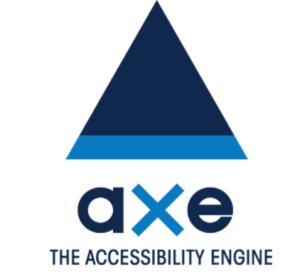Google’s Lighthouse Now Includes axe-core!

The Audits panel is now powered by Lighthouse, and the Accessibility Audit is powered by *drumroll* Deque’s very own axe-core rules engine!
We learned that Google was planning to replace their own automated accessibility testing engine with axe at the 2017 CSUN Assistive Technology Conference in San Diego. Specifically, it would become the engine behind accessibility testing in their open-source Lighthouse testing tool which would then be rolled out in the new Audits panel in Chrome DevTools.
It’s very exciting to see axe recognized this way and integrated into a testing tool that is literally at the fingertips of every Chrome user. In addition to accessibility, the Audits panel provides data and tips to optimize site Performance, Best Practices, and Progressive Web Apps. These metrics are part of Google’s overall goal to encourage better web development practices. These are also data points that Google can use to determine how pages are ranked in search results. And, in some cases – like Performance, they definitely do impact your search ranking.
What Does This Mean for Accessibility?
Does this mean your site’s accessibility is going to impact its ranking in Google search? Given that there’s quite a bit of overlap between accessibility and SEO, it technically already does.
In any case, Google’s got a clear message: accessibility is as essential as site Performance and Best Practices.
Accessibility testing is so basic, it’s already part of your browser.
Google has also made accessibility testing about as approachable as possible, which is important when it’s still a new concept to most developers. The DevTools audit is only performing automated accessibility testing.
Because they’re using axe as their rules engine, their audits only return issues that can absolutely be determined with automation – no false positives. The result is clear reporting of the most common and most easily fixed accessibility issues.
The downside of the DevTools accessibility audit is that’s only half of the story. Your page may have scored a 94 in accessibility according to Lighthouse, but it’s only telling you the results of automated testing. You also have to perform manual accessibility testing to really know where you stand.
It’s great to see Google taking such a strong position on the importance of accessibility in their DevTools, and if you’re totally new to accessibility, it’s a great place to start. If your site has accessibility compliance requirements (or if you just want to take accessibility and inclusive design to the next level), we hope you’ll go straight to the source.
Ready To Try Testing for Accessibility with axe?
Download the axe extension for Chrome or axe for Firefox. The axe-core API is available on Github. If your organization has accessibility compliance requirements and needs tools that can test on a large scale, check out our WorldSpace suite. Finally, visit Deque University to learn more about accessibility and develop your expertise.